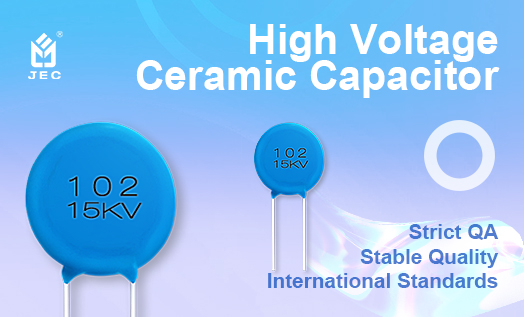Ceramic capacitors are capacitors made by utilizing ceramic material as a dielectric, coated with metal electrodes on its surface. They exploit the high dielectric constant of ceramic material, resulting in higher capacitance for the same electrode area and spacing.
Moreover, ceramic capacitors exhibit excellent temperature stability, high-frequency characteristics, and low losses. Due to these superior attributes and wide-ranging applications, they serve essential functions in electronic devices.
Typical applications of ceramic capacitors in electronic devices include:
Power supply filtering: Ceramic capacitors are utilized in power circuits to filter out high-frequency noise and ripple, thereby enhancing the stability and purity of the power supply.
Signal coupling: In signal processing circuits, ceramic capacitors act as signal coupling components, facilitating signal transfer and isolation between different circuits.
Oscillator circuits: Ceramic capacitors function as resonant components in oscillators, forming resonance loops with inductors and other components to generate stable oscillation signals.
Energy storage components: In circuits requiring short-term energy storage, ceramic capacitors serve as energy storage components, providing the necessary power to the circuit.
Furthermore, ceramic capacitors find widespread applications in fields such as telecommunications, computing, and industrial automation, offering vital support for the smooth operation of various electronic devices.
It is important to note the quality and reliability of ceramic capacitors when using them. Poor-quality capacitors can pose risks to electronic devices and users. Therefore, it is advisable to select ceramic capacitors of high quality and reliability.
This article is provided by JYH HSU (JEC) Electronics. JEC is a research, development, production, and sales-oriented company specializing in manufacturing and selling various electronic components such as capacitors and resistors.
Post time: Apr-15-2024

